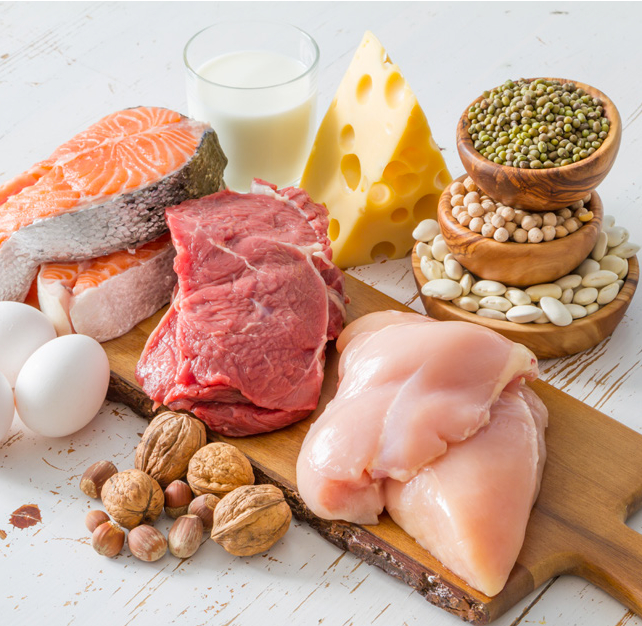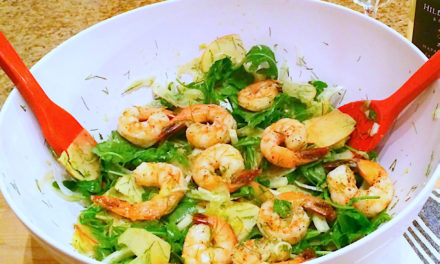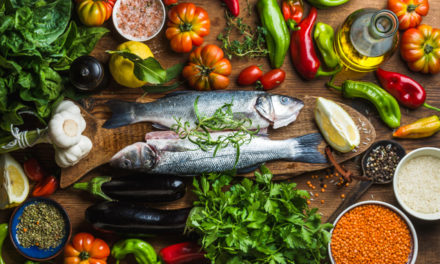Whether you choose barre, cycling, powerlifting, or running, fueling well with plenty energy and protein to train, perform, and recover is key. Though protein is widely known for its role in muscle growth and contraction, this macronutrient does so much more than fuel physical activity alone. Proteins also act as:
- Antibodies to fight infections
- Enzymes to speed up reactions, like digestion
- Hormones to coordinate metabolism, temperature regulation, and more
- Hemoglobin to transport oxygen from the lungs throughout the body
Amino acids are small organic compounds that come together to form protein. There are 20 different kinds of amino acids that serve as building blocks for various types of proteins. Protein’s structure serves to slow digestion, which increases satiety and fullness at meals and snacks. While protein is in all foods in varying quantities, food sources with higher protein fall into two categories: animal and plant-based proteins.
| Animal Proteins | Plant-based Proteins |
| Poultry Beef Fish Ham Pork Eggs Yogurt Cheese Milk | Nuts Nut butter Tofu Beans Tempeh Edamame Peas Lentils |
Animal sources of protein are considered complete due to their amino acid profile, while plant-based proteins require a “pairing” with another food to ensure a complete amino acid profile (example: peanut butter AND toast or rice AND beans).
Do I Get Enough Protein?
Answer the next few questions to see where you fall…
- True or False I eat a source of protein 2-3 times a day, between meals and snacks.
- True or False I eat mostly animal sources of protein.
- True or False I am a vegetarian, and I intentionally seek out plant proteins.
If you answered mostly “false,” perhaps it’s time to add some punches of protein in your day-to-day eating.
Remember: Too much of a good thing isn’t necessarily a good thing…There is no nutritional benefit to eating protein in excess. Use “The Plate Method” to ensure balance: portion half your plate with fruits or vegetables, a quarter with protein, and a quarter with carbohydrate-rich foods as a general guide.
Eating enough protein-packed foods is just as important as eating them consistently, spreading protein intake evenly throughout the day. Latest nutrition research shows muscle protein synthesis (or muscle growth) is 25% higher when protein is steadily and consistently eaten throughout the day versus eaten in a single protein-heavy dinner. Similarly, pairing protein with carbohydrate within 30–45 minutes of a workout is ignites optimal recovery. Tried and true post-workout snacks include:
- Sunflower Seed Butter + Graham Crackers
- Chocolate Milk
- Turkey + Tortilla Wrap
- Grapes + Cheddar Cheese
Still wondering if you’re portioning protein appropriately? Memphis Nutrition Group provides personalized nutrition coaching and can tailor recommendations specifically for you.
Try Food First!
Age, health status, and training goals are a few of the factors that influence protein needs. Most athletes can meet their protein needs through food alone, without the use of supplements. When a boost in protein is warranted or time constraints make eating whole foods challenging, supplementation can be helpful. Shakes and protein powders can fill nutritional gaps but are not meant to replace “whole” foods, which generally offer more readily absorbed nutrition (and enjoyment!) to our bodies.
Whey protein: best for post-workout and day-to-day
Contains all essential amino acids
Readily and easily digested
Soy protein: ideal for women and vegetarians
Can help lower blood pressure
Can promote women’s hormonal health
Plant protein: great for vegetarians
Aim for a mixture of pea, brown rice, and hemp proteins to ensure all essential amino acids are present
Research shows is equitable to whey protein
Collagen protein: research still pending
May help collagen growth for skin, hair, and nails
Though each person’s nutrition and fitness journey is unique, these two guidelines are crucial to optimizing performance: Eat enough and prioritize protein at each meal and snack. Finish the summer strong, powering your life with delicious food and satisfying protein!
Caroline Pruente, MS, RDN, LDN is a nutrition therapist and Registered Dietitian at Memphis Nutrition Group. Memphis Nutrition Group believes in a non-diet approach that promotes overall health and optimal performance without compromising the enjoyment of food. For more information call Memphis Nutrition Group at 901.343.6146 or visit MemphisNutritionGroup.com.







